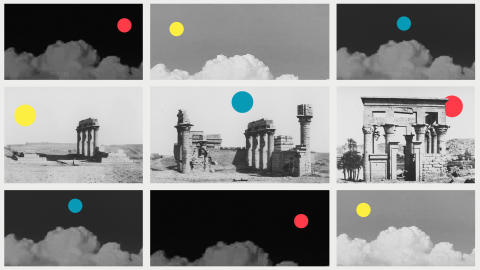21/22 Season: Optimism, discovery, and inspiring music

The recovery of artists and musical works that had been scheduled a year ago, the discovery of a lot of inspiring music, and the reaffirmation of our important role in Basque society are the main features of this new concert Season.
To help with this goal, we will see established figures such as Pinchas Steinberg, Pinchas Zukerman, Pietari Inkinen, Mei-Ann Chen, Varvara, Yulianna Avdeeva, and Dmitri Makhtin passing through our auditoriums. We will welcome great artists from our land, such as Ainhoa Arteta, Asier Polo, the Orfeón Donostiarra Choir, and the Orfeón Pamplonés Choir.
We will continue to place our faith in Basque creation and we will debut works by Pascal Gaigne, Joël Merah, and Teresa Catalán. These latter two creations were commissioned by the orchestra as part of the Elcano: Mundubira Musika Bidelagun Project, which will reach its final destination in the autumn of 2022.
Among the milestones of the new Season, noteworthy is the start of the season, which features a Brahms festival, as well as the presence of great symphonic pieces such as the Requiem by Brahms and Symphony No.2 by Mahler, to speak of our collective resurrection, as well as our audience's discovery of authors such as Zhou and Dutilleux.
The 21/22 Season is filled with greater optimism. However, in order to get back to normality without overdoing things, the first two programmes are designed with a maximum of 600 seats, and we hope that this maximum can be increased later on.
Season concerts
A time of hope and improvement is on the horizon. Our goal now is to regain our optimism and trust, and to return to our concert halls with our mind at ease. We are coming from a difficult Season in which we multiplied our activity and turned our concerts into marathon sessions in order to reach our entire audience. We offered a total of 131 concerts, 98 of which were part of the Subscription Season (there are normally 50 subscriber concerts). We scheduled a lot of symphonic music and planned an entire repertoire for a somewhat smaller orchestra, due to the obligation of maintaining safety distances – even on stage. And we succeeded. Now it is time to talk of optimism and our fine programming.
The 2021/2022 Subscription Season of the Basque National Orchestra will begin on 27 September in Pamplona and it will end on 8 June 2022 in Bilbao. In the first two programmes, we will continue doubling sessions, as we did in the 20/21 Season: in the first programme, entitled Brahms Fest, we will offer a total of 10 concerts over ten days in the four usual capitals. In the second one, Tchaikovsky, double sessions have been scheduled for the same afternoon in each city. From the third programme onward, the hope is to get back closer to normal in terms of auditorium capacity.
General lines: optimism, discovery, and a long journey
We wanted to focus on the optimism that pieces like Brahms's great symphonies entail, doing so through the performance of all of his symphonies. And also Beethoven and Berlioz, with Symphony No. 7 and Symphonie Fantastique, respectively. Another important line of this Season is the idea of the discovery for the general public, on the one hand, of composers such as the American Zhou and the French Dutilleux and, on the other, the debut of pieces related to the Elcano: Mundubira Musika Bidelagun Project (Joël Merah and Teresa Catalán) and to the pandemic (Pascal Gaigne).
The long journey refers to the work that Robert Trevino has undertaken since his arrival to the orchestra. And, as an example, there is Mahler, whose Symphony No. 1 was performed during Trevino's debut as conductor with the orchestra. Mahler has been with us ever since. And now comes his magnum opus, Symphony No. 2, ‘Resurrection’, a piece that was scheduled for the 19/20 Season and which could not be performed due to the pandemic. It is now being recovered this season to symbolise the rebirth and recovery of our lives, just like the image the new Season evokes with its rose.
Brahms Fest to start with
As a continuation of the Schubert symphony marathon that kicked off the 20/21 Season, the orchestra will repeat the same scheme and present the Brahms Fest. All of the symphonies by this German composer, his Concerto for Violin and Cello and Piano Concertos No. 1 and No. 2 will be performed, distributed over 10 concerts during the inaugural programme that the orchestra will offer in its four subscription cities. Robert Trevino wielding the baton, three soloists, and the orchestra itself will shape this festival that will travel the country in a new musical challenge.
Robert Trevino this Season
The chief conductor of the orchestra will lead six of the eleven programmes this season. After the opening of the special Brahms Fest, an original programme will be offered featuring Xavier de Maistre's harp as the main player as well as Symphony No. 10 by one of Trevino's travelling companions, Shostakovich. That will be followed in February by an American programme that manifests itself through the better-known Bernstein and the discovery of Zhou. In the final stretch, Symphony No. 2 by Mahler, entitled ‘Resurrection’, will be performed – a performance that now has more relevance than ever. Robert Trevino will join the Elcano: Mundubira Musika Bidelagun project in May with the debut of La Victoria Vacía by Teresa Catalán, who recently won the Prince of Viana Award. This programme will also feature one of the discoveries of the season with Symphony No. 1 by Dutilleux. Trevino will wrap up with Wagner, Elgar, and Bartok, on this occasion, with Pinchas Zukerman and one of the musical masterpieces that have accompanied his career: Viola Concerto.
Debuts and new repertoire
The Elcano: Mundubira Musika Bidelagun Project (which commemorates the 500th anniversary of the first journey round the world) is another far-reaching initiative that follows the conductor's journey and will end in the autumn of 2022. Joël Merah with Jakinduriaren usaina and Teresa Catalán with La victoria vacía will pick up this season where the first composers, Mikel Chamizo and Mikel Urquiza, left off.
In addition to the two pieces of the Elcano Project is the debut of Urrutiko Arimak and Urruneko Azalak by Pascal Gaigne.
What is more, three pieces will be performed by the orchestra for the first time, and they will also be a great discovery for the audience: Ginastera's Harp Concerto, Zhou's Concerto for Orchestra, and Dutilleux's Symphony No. 1.
Conductors, soloists, and choirs
The orchestra will once again welcome a good handful of artists throughout its programming, although it should be noted that we will again tackle three programmes alone, without guest soloists, giving the orchestra a prominent role in the season.
COMPOSERS: Robert Trevino will continue to have a strong presence (with six programmes) and he will share the podium with conductors Mei-Ann Chen, Pinchas Steinberg, and Georg Mark, recovered from the 19/20 Season, in addition to Pietari Inkinen, who will make his debut with the orchestra, and Jaume Santonja, the orchestra's associate conductor.
SOLOISTS: In terms of soloists, we will welcome for the first time pianists Yulianna Avdeeva and Varvara, who had been scheduled for the 19/20 season, as well as Tom Borrow (piano) and Alexey Stadler (cello). Great artists such as Dmitri Makhtin (violin), Pinchas Zukerman (viola), and Xavier de Maistre (harp) will once again be with us, as well as Asier Polo (cello). In terms of vocals, we open with soprano Ainhoa Arteta, followed by Michael Nagy (baritone), Sarah Fox (soprano), and Justina Gringyte (mezzo-soprano).
CHOIRS: Two great choral symphonies will hit the scene in March and May. For Brahm's A German Requiem, we will welcome the Orfeón Pamplonés Choir. Likewise, Mahler's great masterpiece, Symphony No. 2, ‘Resurrection’, will feature the vocals of the Orfeón Donostiarra Choir.
Other orchestral activities
An autumn with albums and films
Together with its active concert schedule, the orchestra is also immersed in a project that features recordings with very different styles and aims. All productions are of utmost quality and are meant for different environments, being of great documentary value.
AMERICAN COMPOSERS: After Ravel, the autumn has in store the release of a second album made with Robert Trevino. This is a recording that focuses on symphonic production by lesser-known American composers. Recording has already been undertaken and international release is set for early October under the Ondine record label, a Finnish company with which Trevino has a recording agreement for the next few years.
KALAKAN: This new collaborative effort with the group from the French Basque Country got off the ground in May. Now the work is being put together with the help of the Elkar studio and the end result will be shown during the concerts scheduled for late October and early November, as part of the crossover cycle that the orchestra has participated in for years entitled KlasikAt. This new partnership will be a continuation of all the projects that the orchestra shares with Basque authors such as Izaro, Huntza, Zea Mays, Dr. Deseo, and Ken Zazpi.
GUTIZIA: This is the title of another album project that focuses on the symphonic universe of the txistu, starring Garikoitz Mendizabal. Gutizia is a compendium of pieces written for the txistu, put together in an exceptional way into 80 minutes of music whose final result will also be ready in autumn, thanks to the Orpheus record label.
SOUNDTRACKS: The orchestra has participated in many soundtracks alongside Fernando Velázquez, such as Patria, Hil Kanpaiak, the series El Inocente, and the Mexican film Poderoso Victoria. The music for the film Maixabel, directed by Iciar Bollaín, will be added in the next few days to the list of soundtracks. The music was written and will be directed by Alberto Iglesias, and will be recorded at Miramon.
LIDE TA IXIDOR: This is the recording of a children's lyrical story that features the music of Santos Inchausti. This piece's recovery is part of the Euskal Opera Project by the Bilbao Choral Society, which has the aim of editing the scores and recording the operas in Basque commissioned by said Society at the beginning of the 20th century. This children's opera will be recorded in Bilbao, with the participation of the children's choir and the mixed choir of the Bilbao Choral Society.
RAVEL: It is necessary, at this point, to refer to the CD released at the beginning of April with the most representative symphonic pieces by Ravel. This disc, which also bears the Ondine label from Finland, has become the best international passport for the Basque National Orchestra. It is having an important impact in many parts of the world, from Japan and Australia to the USA and Europe, and it is receiving very good reviews from the most prestigious specialised media outlets (Gramophone, France Musique, BBC Music Magazine, Diapason, etc.). A musical interpretation of this composer's more "Basque" side has allowed Trevino and the orchestra to offer, through this recording, a new approach to Ravel's work and, consequently, make it highly attractive on the international scene.
Shared projects
The orchestra will maintain its commitment to the ABAO Bilbao Opera Season, Musika-Música of Bilbao, and the BBVA Foundation Frontiers of Knowledge Awards Gala Concert. Due to the pandemic, the orchestra will not yet regain its presence at the San Sebastián International Film Festival with its now traditional concert of film soundtracks in the Velodrome, but it will participate in the San Sebastián Musical Fortnight and in Musikaste.
The Miramon Matinées and Music Room cycles by the orchestra will be held once again and their presentation is to come shortly.
Subscriptions and tickets
The current capacity restrictions prevent us from allowing for new subscribers, but we can take names to be placed on a waiting list. As allowed capacity is increased, we will be able to accept new subscribers. You can have your name put on the waiting list through the orchestra's website (euskadikoorkestra.eus) and by phone (943 01 32 32).
As in the season that we are now wrapping up, the sale of single tickets that are not part of a subscription will open up as the concerts approach and whenever there is availability. It has been decided to keep the prices for subscriptions and single tickets the same as last year.
Patronage
With the conviction of being a very necessary cultural instrument in society, the Basque National Orchestra has put in place a new tool for connecting with the public through patronage. This will allow those who wish to add to the development of our Basque cultural project to do so through monetary contributions.
The patronage scheme is presented as a necessary tool for the future which is complementary to the subsidies received from the government, being turned to as a means for contribution to, and development of, culture and society. All donations to the orchestra will allow you to benefit from a tax deduction.
Special thanks
Lastly, the orchestra wants to thank the important collaboration and support of all the entities that participate in the undertaking of its different activities: its subscribers and the general public, sponsoring and collaborating entities, cultural agents, the media, etc. You all help to make the activity of the Basque National Orchestra possible.









